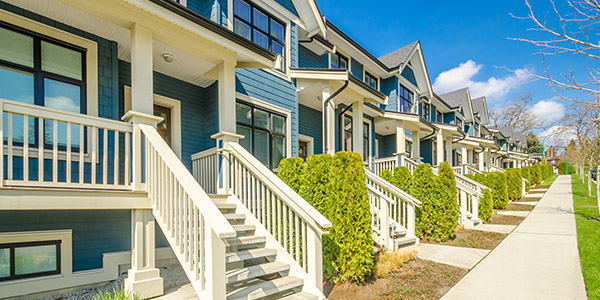Homebuyers
When Should I Lock in My Mortgage Rate?
November 25, 2021
For most people, buying a home is their most important purchase decision, if not their largest. So, when it comes to the question, "When should I lock in my mortgage rate?", it's critical to make an informed decision. There are several factors to consider when making this important choice. But first, let's review.
What is a Mortgage Rate Lock?
After you are pre-approved for your mortgage, it's time to find the home you want to buy. Once this is accomplished, you'll want to make an offer. If your offer is accepted and you have signed a purchase agreement, you will have the opportunity to lock in your mortgage rate.
By locking in your mortgage rate, it simply means that you and your lender have agreed to a certain interest rate that is "locked in" at that figure for a defined period even if the market rate should rise and fall.
Your lock should include the interest rate, the total days of the lock (typically 30 or 60 days), and the points charged (if applicable). If you're having your home built, sometimes it won't be completed for months. Many lenders will offer new construction rate locks for 180 days, 270 days, 360 days, and more.
How Long Should I Lock in My Mortgage Rate?
Your mortgage rate lock can expire, so you should allow enough time for closing to take place. From the time you submit your mortgage application to closing day takes an average of 46 days, according to Ellie Mae®, a software company that processes U.S. mortgage applications.
If your lender charges for a lock, fees can vary depending on the size and length of the loan, along with the lock period. This is measured in basis points (bps). (For example, 25 bps = 0.25 of the total loan value.) In general, a shorter rate lock period may lower your interest rate. Conversely, the longer the rate lock period, the higher the interest rate.
Acting fast to lock in your rate before closing is important to avoid market fluctuations that can cause rates to go up as well as possibly affect your loan approval. You also run the risk of losing the rate if your loan is not processed within your loan period. In certain conditions, mortgage rate locks can be extended by your lender.
When Should I Lock in My Mortgage Rate?
There are several considerations for locking in your mortgage rate. Among them are the following:
- When is your home purchase expected to close?
- Is there a chance your home purchase may exceed the closing date?
- What's the current interest rate as you're attempting to purchase your home?
- Can you afford the potential monthly mortgage payments at the current interest rate?
Once you have the answers to these questions, you can make a more informed decision. Of course, you'll want to consult with your lender as well.
Why Should I Lock in My Mortgage Rate?
It's simple. A lower rate means you'll have lower monthly payments. This can save you thousands of dollars over the life of your loan. It also ensures that your mortgage rate will not increase before closing, which can give you added peace of mind and make your homebuying experience less stressful. A higher rate will result in higher monthly payments and possibly a higher down payment if your lender requires more money upfront.
Is a Mortgage Rate Lock Right for Me?
If you're thinking about buying a home or having a home built, give New American Funding a call. We can guide you through the loan process and answer your questions, including about mortgage rate locks what loan works for you, and your dreams of homeownership.





 Smart Moves Start Here.
Smart Moves Start Here.